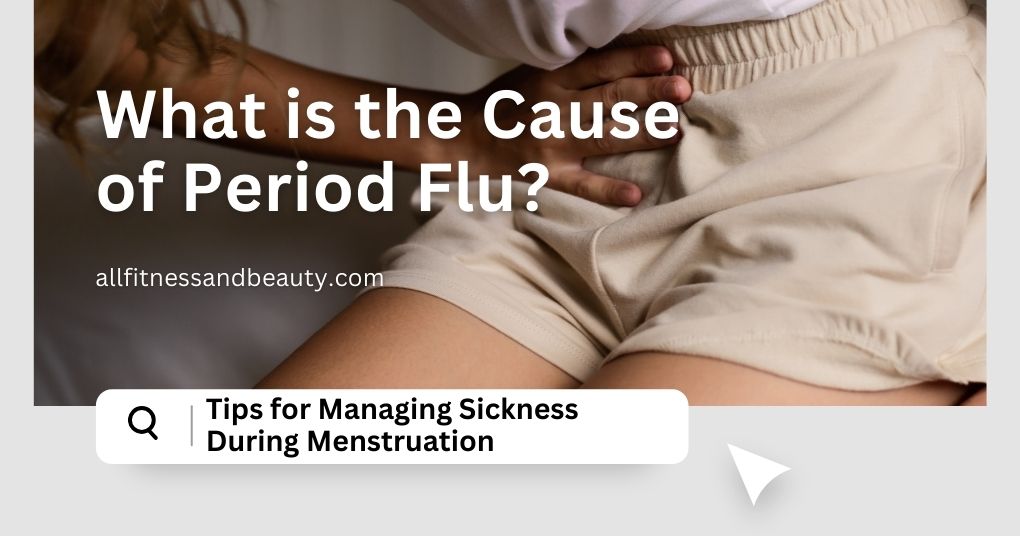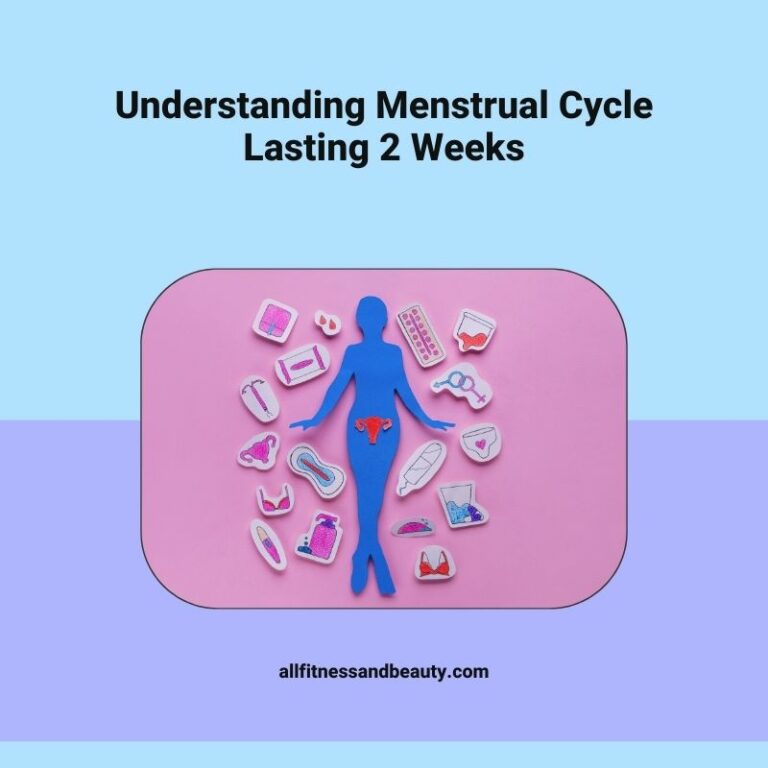Why Do I Get Sick on My Period?

Do you throw up when you get your period? Is it normal? It is important to know that many girls do throw up before or during their periods. So, you are not alone. It is not an actual flu. Don’t worry about it. The feelings are similar to the symptoms of PMS.
To buy user-friendly period panties, please visit here.
What is the Cause of Period Flu?
It is not clear what causes the symptoms. Period flu, per se, is not a medical diagnosis. Thus, there is no specific set of symptoms. They can just vary from one person to another.
The feelings of pain may start before or during the start of your period every month. Or they can begin after ovulation. It happens around 10 to 16 days before your period starts. But it really depends on your menstrual cycle.
Hormonal Fluctuations
Your hormones, including estrogen and progesterone, regulate your menstrual cycle. These hormones fluctuate throughout the menstruation cycle, reaching their lowest levels during menstruation.
The changes can impact various systems in the body, including the immune system. Some women may find that their immune response is slightly weakened during their period, making them more susceptible to infections or illnesses.
Immune System Response
Research suggests that the immune system undergoes subtle changes throughout the menstrual cycle. During menstruation, the body’s immune response may be somewhat suppressed. It makes it easier for infections to take hold.
It can manifest as symptoms such as sore throat, nasal congestion, or general feelings of malaise.
It is essential to note that these changes are usually temporary and the immune system typically rebounds as the menstrual cycle progresses.
Iron Levels
It leads to a loss of blood, and with it, a decrease in iron levels. Iron is crucial for the transport of oxygen in the blood. A deficiency can result in fatigue, weakness, and a general feeling of being unwell.
You may be more sensitive to these changes, experiencing symptoms of sickness during the period due to fluctuations in iron levels.
Maintaining a balanced diet with iron-rich foods, and if necessary, iron supplements can help mitigate these effects.
Individual Variability
Every woman’s body is unique, and individual factors can play a significant role in how menstruation affects overall health. Some women may be more prone to experiencing sickness during their period due to pre-existing health conditions, stress, or lifestyle factors.
Understanding one’s own body and recognizing patterns can empower individuals to manage symptoms more effectively.
Tips for Managing Sickness During Menstruation
Take pain relievers
There are plenty of them online. The most popular is NSAID. You can take ibuprofen. It is an OTC drug that can quickly ease your pain during menstruation. This drug cuts down the production of prostaglandin.
To make it effective, make sure to take it as soon as you feel menstrual cramps. You may also take acetaminophen.
It is important to note that you should only take NSAIDs after every meal. Taking it on an empty stomach is not ideal, especially if you have gastro symptoms.
Use Birth Control Pills

These pills are also known to ease pain. They can also thin your uterine lining to reduce prostaglandin production.
If your symptoms are bad, you can take both birth control pills and NSAIDs together. However, you should talk to your doctor first before taking this relief.
Try Heat Therapy
Many women swore about this relief. By applying a heating pad or hot water bottle to your belly, any pain or aches you feel may be reduced or relieved.
Improve Blood Flow with a Message
A massage may also help as it improves blood flow. You may get some relief, even though the pain will not go away completely.
It is also vital to exercise before and during your period. This will help in reducing period symptoms, especially if you experience debilitating pain and cramps.
You should also avoid smoking and limit caffeine intake or alcohol. These beverages are known to trigger PMS.
The Importance of Rest During Your Menstruation
Rest is vital when experiencing period flu. Keep in mind that you are dealing with a combination of menstrual symptoms and flu-like symptoms.
It typically refers to a cluster of symptoms that can include fatigue, body aches, nausea, headache, and a low-grade fever during menstruation.
Menstruation alone can lead to fatigue due to hormonal changes and the physical demands on the body.
When you include flu-like symptoms in the mix, the body requires even more energy to fight off infection and cope with the increased discomfort. Resting lets your body redirect energy towards healing and recovery.
Immune System Support
The immune system is often compromised during menstruation. It makes the body more susceptible to infections.
When the body is fighting off both menstrual symptoms and flu-like symptoms, the immune system needs additional support.
Resting gives the immune system the best chance to efficiently combat both sets of symptoms.
Stress can exacerbate both menstrual symptoms and flu symptoms. Resting provides an opportunity to reduce stress levels by allowing the body and mind to relax.
Lower stress levels can contribute to a more effective immune response and overall better well-being.
Adequate rest can contribute to a quicker recovery. When the body is allowed to rest, it can focus its resources on repairing and regenerating tissues, combating infection, and restoring energy levels.
It can help shorten the duration and severity of period flu symptoms.
Resting allows you to better manage your pain as the body can release endorphins, the body’s natural painkillers, more effectively during periods of rest.
Pushing through symptoms and not allowing the body sufficient rest may increase the risk of complications, such as prolonged illness or a more severe flu.
Resting at the onset of symptoms can prevent the progression of illness and reduce the likelihood of complications.
Rest is vital during your period because it supports the body’s natural healing processes, aids the immune system in combating both menstrual and flu symptoms, and contributes to a faster and more effective recovery.
Listening to your body, getting adequate sleep, and taking time to rest can significantly improve your overall well-being during this challenging time.
When to See a Doctor?
It is normal to experience menstrual symptoms. You can manage them through self-care. However, there are instances when you need to consult a healthcare professional.
For instance, if you have severe, debilitating pain, it can be a sign of an underlying issue, such as endometriosis or uterine fibroids.
Excessive bleeding may also warrant a consultation with a healthcare professional.
Every woman’s body is unique. What is normal for one person may not be for another. If you have concerns about your menstrual health, it is a good idea to talk to your doctor for personalized advice.
To help save the planet, consider using period panties. Buy it here.




Leave a comment